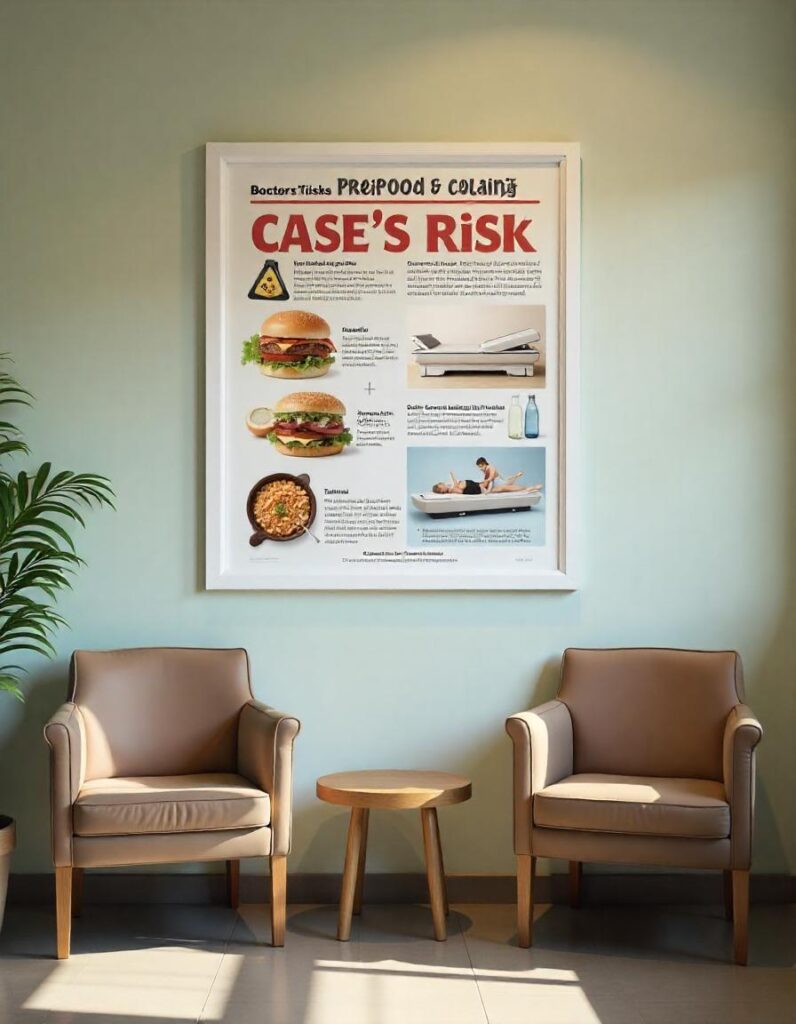
In a world where health information is everywhere, it’s surprising how our perception of cancer risks often doesn’t match reality. Did you know that while 61% of North American women fear cancer above all other diseases, heart disease actually claims more lives? This disconnect between perceived and real health risks is just one example of how our understanding of health threats needs updating.
The Rising Concern: Young Adults and Cancer
One of the most alarming trends we’re seeing is the dramatic increase in cancer diagnoses among people in their twenties, thirties, and forties. While scientists are still working to understand all the factors behind this trend, several key lifestyle elements have been identified as contributing factors.
The Big Players in Cancer Risk
1. Tobacco: Still Public Enemy Number One
Despite decades of public health campaigns, tobacco remains the leading cause of cancer globally. In the UK alone, six out of ten cancers are linked to smoking – both active and passive. If you’re still smoking, this is your wake-up call: tobacco use is connected to at least 16 different types of cancer and plays a role in one out of every five cancer deaths.
2. Alcohol: The Silent Contributor
Many people underestimate alcohol’s role in cancer development. Whether you prefer wine, spirits, or beer, regular alcohol consumption increases your risk of seven different cancers. The equation is simple: the more you drink, the higher your risk. And if you combine drinking with smoking? The risk of mouth and throat cancer skyrockets beyond the individual risks of either habit.
3. The Weight Factor
Here’s something that might surprise you: body weight plays a crucial role in cancer risk. Obesity isn’t just about appearance or cardiovascular health – it’s a chronic inflammatory condition that can increase your risk of multiple cancers. The science behind this is complex, involving insulin resistance and oxidative stress, but the message is clear: maintaining a healthy weight is crucial for cancer prevention.
Lifestyle Choices That Matter
Exercise: Your Secret Weapon
Physical inactivity is linked to 13 different types of cancer, with an estimated 5% of all cancers attributed to lack of regular exercise. The good news? You can reduce your risk of certain cancers by up to 30% through regular physical activity. And here’s the best part: any exercise counts. Find something you enjoy, and make it a regular part of your life.
Diet: You Are What You Eat
Your diet plays a crucial role in cancer prevention. Here are some key points to consider:
- Red Meat: Limit consumption to less than 500g per week (that’s about two medium steaks)
- Processed Meats: Items like bacon, ham, and salami are classified as Group 1 carcinogens – the same category as tobacco, though not equally dangerous
- Ultra-processed Foods: A 2023 Lancet study found that high consumption of animal-based ultra-processed foods and artificially sweetened drinks increased cancer risk by 10%
The Surprising Factor: Height
In an interesting twist, research shows that being tall is associated with increased risk of several cancers, including ovarian, prostate, bowel, kidney, and breast cancer. While we can’t change our height, understanding this risk factor helps medical professionals in their screening and prevention strategies.
Taking Control of Your Health
While some cancer risk factors are beyond our control, many are lifestyle-related and can be modified. Here’s what you can do starting today:
- If you smoke, quit. It’s never too late to reduce your risk
- Limit alcohol consumption
- Maintain a healthy weight through diet and exercise
- Stay physically active – find an activity you enjoy
- Choose whole foods over ultra-processed options
- Protect your skin from UV radiation
- Get regular health check-ups and screenings
Remember, reducing cancer risk isn’t about eliminating every possible risk factor – it’s about making informed choices that support your overall health and well-being. Small changes in your daily habits can add up to significant reductions in your cancer risk over time.
By understanding and acting on these risk factors, you’re not just working to prevent cancer – you’re investing in your overall health and longevity. Start making these positive changes today, and your future self will thank you.
Stay healthy, stay informed, and take control of your health journey.








